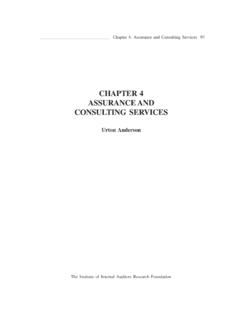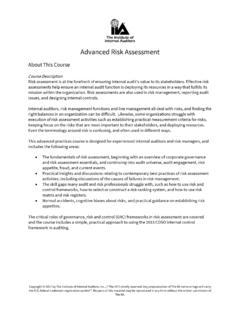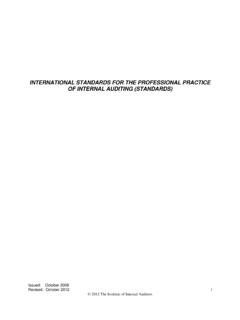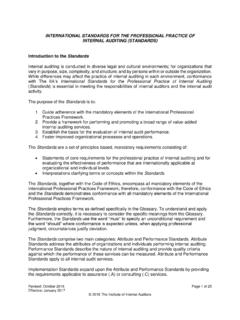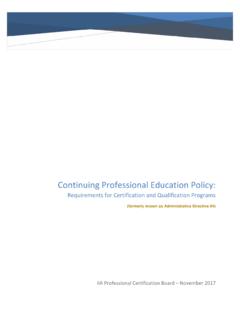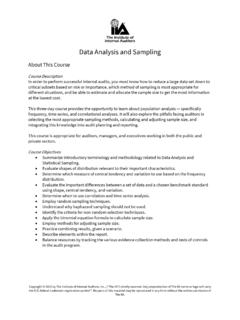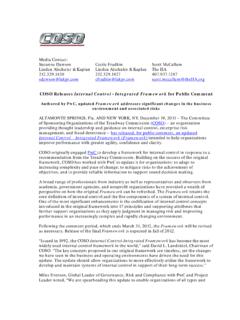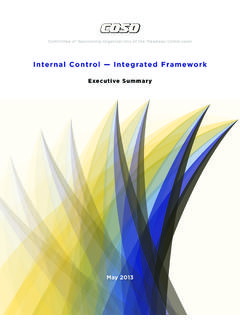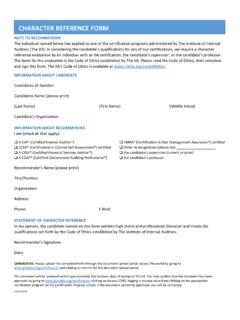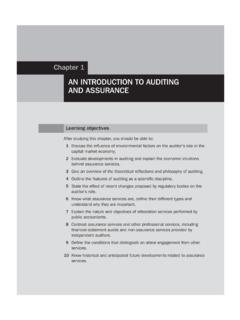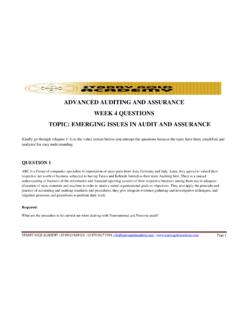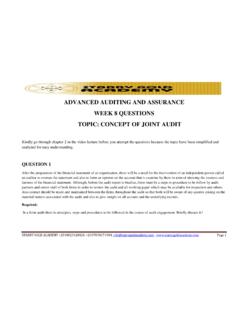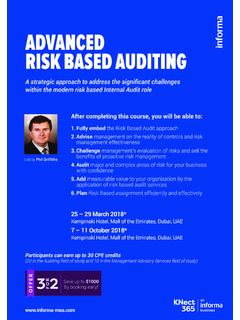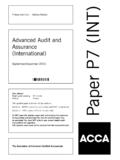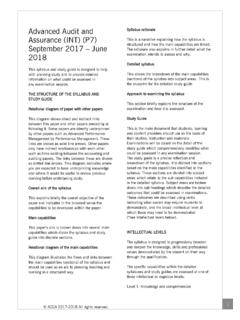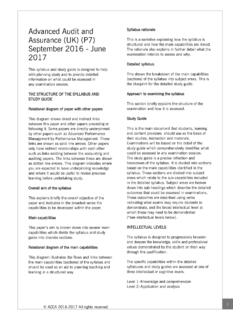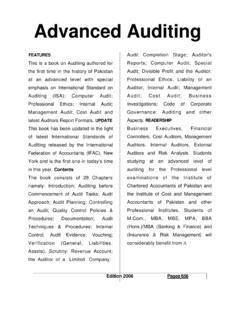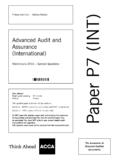Transcription of Advanced Risk-based Auditing - na.theiia.org
1 Copyright 2017 by The Institute of Internal Auditors, Inc., ( The IIA ) strictly reserved. Any preproduction of The IIA name or logo will carry the federal trademark registration symbol . No parts of this material may be reproduced in any form without the written permission of The IIA. Advanced Risk-based Auditing About This Course Course Description The need to manage risks is increasingly recognized as essential to effective corporate governance and to maintaining an effective system of internal control. Internal audit plays a key role in providing assurance that risks to the organization are properly managed. Risk-based Auditing links internal audit to an organization s overall risk management framework. This course provides participants with the knowledge to develop an audit universe and Risk-based internal audit plan.
2 This course also addresses emerging and Advanced risk management topics such governance risk, strategic risk, fraud risk, information technology risk, and Auditing the risk management process. During this course, you will participate in interactive activities and real-life scenarios. Be prepared to walk away with concepts and tools to develop a value-added, Risk-based audit plan for your organization. This course is designed for senior internal audit practitioners and audit managers who want to build on their knowledge and increase their value to the organization by developing effective Risk-based audit plans that address emerging risks. Course Objectives Summarize risk management principles and concepts. Identify corporate governance principles. Explain the relationship between governance principles and COSO frameworks.
3 Explain the relationship between governance, risk and control. Identify strategy risk audits. Identify strategy process audits. Identify types of fraud. Examine an anti-fraud program and the role of risk assessment. Identify IT risk assessment frameworks. Discuss cybersecurity, information security, and information technology (IT) governance risks. Assess enterprise risk management process risks. Apply enterprise risk management maturity and comprehensive assessment approaches. Develop an auditable universe risk assessment. Apply risk identification, measurement, and prioritization techniques. Copyright 2017 by The Institute of Internal Auditors, Inc., ( The IIA ) strictly reserved. Any preproduction of The IIA name or logo will carry the federal trademark registration symbol.
4 No parts of this material may be reproduced in any form without the written permission of The IIA. Course Topics Risk Management Principles and Concepts: A Review Risk definitions Risk management definitions Major control and risk frameworks Risk management assessment criteria Corporate Governance Risk Overview, definition, and standards Relationship between governance, risk and control Governance breakdowns Corporate governance principles Governance principles and COSO frameworks Audit activities and approach Strategic Risk Strategy overview Definition of strategic risk Internal audit s consideration of strategic risk Strategy related audit Strategy risk audits Strategy process audits Fraud Risk Assessment Definition and principles Standards and guidelines Anti-fraud program Role of internal audit Internal audit approach Types of fraud The fraud triangle Information Technology Risk The IT risk landscape IT risk assessment frameworks Internal audit considerations Internal audit focus o Cybersecurity o Information security o Governance Copyright 2017 by The Institute of Internal Auditors.
5 Inc., ( The IIA ) strictly reserved. Any preproduction of The IIA name or logo will carry the federal trademark registration symbol . No parts of this material may be reproduced in any form without the written permission of The IIA. Auditing the ERM Process Enterprise risk management audits: Internal audit considerations Assessing enterprise risk management Maturity assessment approach Comprehensive assessment approach Developing the Risk-based Audit Plan Auditable universe: General attributes Audit universe risk assessment: Examples Assessment criteria: Sophistication factors Risk identification Risk measurement Risk prioritization Course Information Course Duration: 2 Days CPE Hours Available: 16 Knowledge Level: Intermediate Field of Study: Auditing Prerequisites: Participants should be senior internal audit practitioners or internal audit managers.
6 Completion of the Fundamentals of Risk-based Auditing course is recommended. Advance Preparation: None Delivery Format: Seminar (Group-Live)
